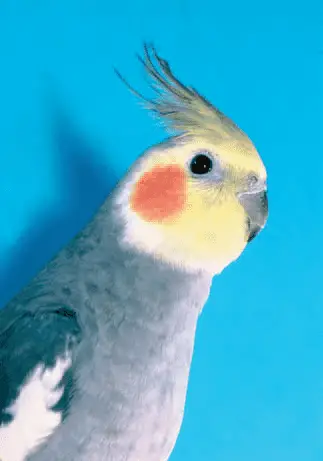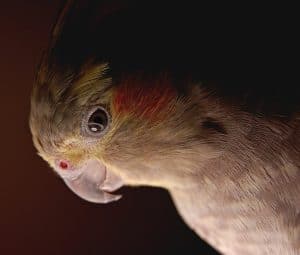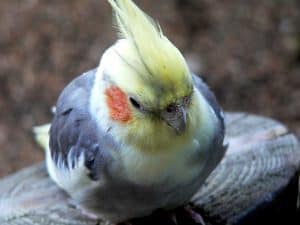Caring for a cockatiel isn’t just about providing a cage and some food; it’s also about knowing how to keep them healthy, especially when they fall ill. One common question I often hear from fellow bird enthusiasts is “how do you medicate cockatiels?” It’s a crucial skill to master, as these charming birds can sometimes hide their symptoms until they’re quite sick.
Understanding the steps to properly medicate a cockatiel involves more than just administering medicine. It’s about ensuring the correct dosage, the right method, and maintaining their comfort throughout the process.
I’ve navigated this challenging task a few times with my own pet birds, and I’m here to share some foundational insights to help you do the same. Whether it’s dealing with a simple infection or a more serious condition, knowing how to effectively medicate your pet bird can make all the difference.
Understanding Cockatiel Medication Needs
Medicating cockatiels requires a sound understanding of their specific health needs and possible illnesses. In my experience, knowing when to treat at home and when to consult a vet can significantly affect recovery outcomes.
Common Illnesses and Prescriptions
Cockatiels might face several common ailments and conditions that necessitate medication. Respiratory infections, Psittacosis (often known as “parrot fever”), and fungal infections like Aspergillosis often affect cockatiels. Symptoms such as labored breathing or lethargy indicate respiratory issues, while signs like weight loss or change in droppings could point to fungal infections.
For treating these conditions, antifungal or antibiotic medications, sometimes in oral form, are prescribed based on the bird’s health and specific illness. It’s crucial to administer these medications correctly; for instance, placing them right into the bird’s beak using an appropriate size syringe. Additionally, medicines that help treat kidney disease or feather diseases might be required, depending on the diagnosis provided by avian vets.
Furthermore, maintaining optimal cage conditions like keeping the cage clean and ensuring a balanced diet can help prevent these common illnesses. If symptoms persist or worsen despite initial treatment, further intervention may be necessary, including adjustments to medication or alternative therapies.
When to Consult a Vet
Knowing when it’s time to consult an avian veterinarian, rather than attempting to treat an issue on my own, is crucial. I always recommend consulting a vet if the cockatiel:
- Does not show improvement within a few days of starting medication.
- Exhibits more severe symptoms, like prolonged lack of food and water intake.
- Requires a physical examination or blood tests to diagnose the condition accurately.
Additionally, scenarios such as possible egg binding in female cockatiels or when there’s a sudden and unexplained weight loss are cues to seek immediate expert medical attention. Early veterinary intervention can mean the difference between a quick recovery and long-term health issues for your feathered friend.
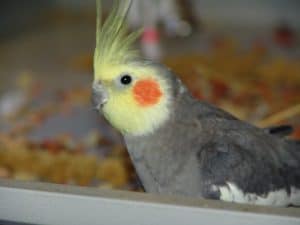
In each instance, ensuring the bird’s comfort during treatment remains a priority. Techniques such as syringe feeding for birds refusing food, or using a heating pad to keep the bird warm, play supportive roles in the recovery process but should complement professional veterinary care.
Preparing to Medicate Your Cockatiel
When it’s time to medicate your cockatiel, preparation is key. Ensuring the entire process is smooth and stress-free can significantly affect your pet bird’s recovery and compliance during treatment.
Creating a Stress-Free Environment
Creating a calm atmosphere is crucial when preparing to give medication to a cockatiel. Here are practical measures I find effective:
- Minimize Noise: Keep the environment as quiet as possible. Sudden loud noises or frequent disturbances can stress the bird, potentially worsening its condition.
- Optimal Cage Placement: Place the cage in a low-traffic area away from windows and direct sunlight, which might help reduce stress for the sick birds.
- Maintain Comfortable Temperature: Ensure the room temperature is comfortable. A heating pad or a heat lamp may be used to keep the bird warm, especially if it’s showing signs of illness such as lethargy.
- Limit Handling: Cockatiels and most birds generally prefer minimal handling while ill. When handling is unavoidable, ensure it’s gentle and brief to minimize stress.
Necessary Supplies for Medication
Having the right supplies on hand before beginning medication can ensure that the process is efficient and effective for your cockatiel. Here’s what I always have ready:
- Correct Medication: Whether it’s antibiotics or antifungals as prescribed by the avian vet, having the medicine ready and at the appropriate temperature is key.
- Syringes and Droppers: For administering oral medication, an appropriate size syringe or an eye dropper is vital. Ensure these are clean and easily accessible.
- Towels for Restraining: Gently wrapping your cockatiel in a soft towel helps to restrain it safely during medication delivery. This method helps to avoid injury and keeps them calm.
- Clean Water and Food: After medication, adjusting the bird’s diet might be necessary. Have fresh water and easy-to-digest foods like soft foods or hand feeding formulas readily available.
By organizing these elements ahead of time, I make sure that administering medication to my cockatiel is as quick and undemanding as possible.
How Do You Medicate Cockatiels?
Administering medication to cockatiels requires precision and patience, ensuring their health without causing stress. Below, I’ll outline several methods for effectively medicating these sensitive birds.
Liquid Medication Via Syringe
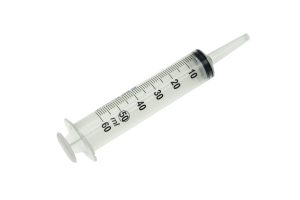
Administering liquid medication directly via a syringe is a common approach, necessary when precision in dosage matters. To begin, I ensure the bird is comfortably restrained, typically wrapping it in a soft towel to prevent it from flapping its wings. Holding the cockatiel securely, I gently open its beak.
I place the tip of the syringe at the side of the bird’s mouth, avoiding the direct back of the throat to prevent aspiration. I then slowly depress the syringe plunger, allowing the cockatiel to swallow gradually. It’s crucial to maintain a calm demeanor, as cockatiels can pick up on anxiety, making the process smoother for both the bird and myself.
Adding Medicine to Food and Water
Another method involves incorporating medication into the cockatiel’s food or water. This approach works well when administering medication that doesn’t have a strong taste or when dealing with a particularly resistant bird. I mix the prescribed dose of medication with a small amount of their favorite foods—maybe mashed fruits or vegetables—to mask any unpleasant flavors.
Alternatively, diluting the medication in the drinking water ensures the cockatiel receives the treatment throughout the day. However, I keep an eye on the bird’s food and water intake to ensure it’s consuming enough to get the full dose of the medication.
Using a Nebuliser for Respiratory Issues
For respiratory issues, using a nebuliser provides direct medication to the cockatiel’s lungs, which can be essential for quick recovery from illnesses like Psittacosis. I set up the nebuliser with the medication prescribed by the avian vet and place the cockatiel in a small, enclosed space where I can control the exposure.
The bird inhales the mist, which contains the medication, allowing for direct absorption into the respiratory tract. I monitor the cockatiel closely during this process to ensure it remains calm and receives the proper amount of medication without distress.
By choosing the correct method and carefully administering each treatment, I help ensure the health and comfort of my cockatiel during its recovery period. Each method requires careful attention to detail and an understanding of the bird’s behavior and needs.
Monitoring Your Cockatiel’s Health Post-Medication
After administering medication, it’s crucial to monitor your cockatiel to ensure recovery and note any potential side effects. This step is integral to the overall treatment process, designed to stabilize and improve your pet bird’s health.
Observing Behavior and Side Effects
Monitoring behavior is essential when assessing the effectiveness of the treatment. Watch for signs of recovery such as a return to normal food and water intake, active participation in usual activities, and maintaining a stable body temperature. Any deviation from usual behavior, such as lethargy, abnormal droppings, or decreased interaction, might indicate side effects or ineffectiveness of the medication.
Key signs to observe include:
- Energy Levels: A noticeable return to normal activity levels indicates improvement.
- Appetite: Consistent food and water intake is a positive sign.
- Physical Symptoms: Look for any new or worsening symptoms, such as difficulty breathing or changes in feather condition.
If you notice any adverse effects, immediate consultation with an avian veterinarian is advisable to adjust the medication or explore other treatments.
Follow-Up Care and Check-Ups
Regular follow-up care with an avian vet ensures that your cockatiel is on the right path to recovery. These check-ups typically involve physical examinations and may include blood tests or other diagnostic procedures to monitor the bird’s response to the treatment. During these visits, discuss any concerns and observe recommendations provided by your vet for ongoing care.
Maintaining records of your bird’s medication schedule, symptoms, behavioral changes, and dietary habits can be incredibly beneficial during these appointments. This information helps your vet make informed decisions regarding the continuation, adjustment, or cessation of treatment.
By taking proactive steps in follow-up care, you help secure a healthier future for your feathered friend.
Caring for a sick bird requires attentiveness and dedication. I’ve shared the essential steps to effectively medicate and monitor your feathered friend ensuring they bounce back to health. Remember it’s vital to keep close tabs on their recovery process and any changes in their behavior or symptoms.
Don’t hesitate to reach out to your avian vet for guidance and follow-up care. With the right approach you’ll not only manage your cockatiel’s health issues but also enhance their overall well-being. Here’s to a speedy recovery for your cherished companion!
Frequently Asked Questions
What are common illnesses in cockatiels?
Cockatiels commonly suffer from respiratory infections, Psittacosis, and fungal infections. Recognizing the symptoms early can lead to a timely and effective treatment plan.
How should I administer medication to my cockatiel?
Administer medication as prescribed by your veterinarian. Use a syringe to gently deliver the medication directly into your cockatiel’s mouth, ensuring they swallow each dose completely to avoid any health risks.
What signs should I monitor in my cockatiel after giving medication?
After administering medication, monitor your cockatiel’s energy levels, appetite, and any physical symptoms like swelling or discoloration. Changes in these areas could indicate side effects or a reaction to the medication.
When should I consult an avian veterinarian?
You should consult an avian veterinarian if you notice adverse effects after medication, if your cockatiel’s condition worsens, or for regular follow-up care to ensure proper recovery and management of the treatment plan.
How can I ensure effective recovery for my cockatiel?
Keep your cockatiel warm, maintain a consistent sleep cycle, and ensure they are eating and drinking properly. Minimize stress and isolate them if showing severe symptoms. Regular check-ups and maintaining medication records also contribute significantly to their recovery.
- How Can Your Other Pets Be Harmful To Your Cockatiel
- How Cockatiels Show Affection
- How Do Children Make Cockatiels As Pets
- How Do Cockatiels See
- How Do Cockatiels Sleep
- How Do Fumes Affect Your Cockatiel
- How Do You Care For Your Cockatiel Everyday
- How Do You Choose A Cage For Your Cockatiel
- How Do You Medicate Cockatiels
- How Do You Provide Your Cockatiel With Water
- How Do You Select Your Cockatiel
- How Do You Tame A Cockatiel
- How Does A Cockatiel Got Her Name
- How Far Can A Cockatiel Fly
- How Far Can A Cockatiel See
- How Fast Can Cockatiels Fly
- How Good Is A Cockatiels Memory
- How Long Can A Cockatiel Go Without Food
- How Long Can Cockatiels Go Without Water
- How Long Do Cockatiels Actually Live For In Captivity
- How Long Do Cockatiels Live In Captivity
- How Long Does It Take For Clipped Wings To Grow Back
- How Long Does It Take For Cockatiel Tail Feathers To Grow Back
- How Long Should A Cockatiel Be Out Of Its Cage
- How Often Do Cockatiels Lay Eggs
- How Often Do Cockatiels Poop
- How Often Should A Cockatiel Go To The Vet
- How Should I Set Up My Cockatiels Cage
- How To Bathe Your Cockatiel
- How To Bird Proof A Room
- How To Bond Two Cockatiels
- How To Bond With A Scared Cockatiel
- How To Build Trust With A New Cockatiel
- How To Calm A Stressed Cockatiel
- How To Care For Your Cockatiels Health
- How To Care For Your Cockatiels Nails
- How To Catch A Cockatiel
- How To Clean Cockatiel Nose
- How To Clip A Cockatiels Nails
- How To Discipline A Cockatiel
- How To Find A Cockatiel That Flew Away
- How To Get A Cockatiel Back Into Its Cage
- How To Get A Cockatiel To Go On Your Hand
- How To Get A Cockatiel To Like You
- How To Get A Cockatiel To Sit On Your Finger
- How To Give Your Cockatiel Exercise
- How To Grow Millet For Cockatiels
- How To Hold A Cockatiel
- How To Introduce A New Cockatiel To Another
- How To Keep A Cockatiel Quiet
- How To Keep A Cockatiel Warm 10 Tips And Tricks
- How To Maintain A Clean Cockatiel Cage
- How To Make Your New Cockatiel Feel At Home
- How To Manage Multiple Cockatiels In One Household
- How To Monitor Your Cockatiels Health
- How To Prepare Your Cockatiel For Travel
- How To Prevent Your Cockatiel From Becoming Stressed
- How To Recognize And Treat Cockatiel Anxiety
- How To Take Care Of An Older Cockatiel
- How To Tame A Cockatiel That Bites
- How To Tame Your Cockatiel
- How To Teach A Cockatiel To Talk
- How To Tell If A Cockatiel Is In Pain
- How To Tell The Age Of A Cockatiel
- How To Toilet Train Your Cockatiel
- How To Train A Cockatiel To Fly To You 8 Steps
- How To Train A Cockatiel To Poop In One Place
- How To Train Naughty Cockatiels
- How To Transition Your Cockatiel To A New Cage
- How To Transport A Cockatiel To The Vet
- How To Trim A Cockatiels Beak
- How To Trim Your Cockatiels Wings
